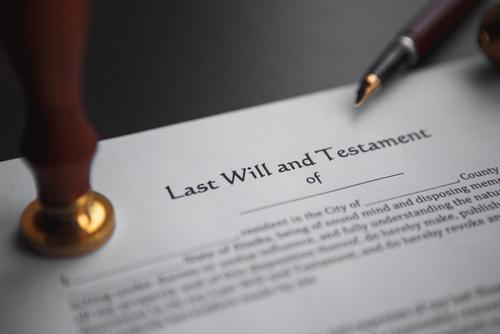When is Probate Necessary in Illinois?
 Probate is a court-supervised procedure in which the court determines who is supposed to inherit the assets of a deceased person. Though not always necessary, it is sometimes required. The following sections can help you learn more about the probate process in Illinois, including when it may be needed and how a seasoned attorney can help improve the outcome for entitled heirs.
Probate is a court-supervised procedure in which the court determines who is supposed to inherit the assets of a deceased person. Though not always necessary, it is sometimes required. The following sections can help you learn more about the probate process in Illinois, including when it may be needed and how a seasoned attorney can help improve the outcome for entitled heirs.
When is Probate Necessary?
Illinois’ probate laws are not dependent upon whether there was a valid will at the time of a person’s death. Instead, they focus on the assets that the individual owned and how they were titled. For example, assets that are found to be joint- or entirety-owned may be distributed without probate. Assets held in trust, assets assigned to a designated beneficiary (i.e. retirement accounts), and real estate assets with a transfer-on-death deed may be distributed without a will or probate as well. In contrast, an estate may be required to go through probate if:
- The estate's value exceeds $100,000,
- Assets belonging to the deceased party were held solely,
- There are concerns over the validity of the will,
- The will contains confusing language,
- Heirs cannot be easily identified,
- Creditors make claims against the estate, or
- The executor is suspected of wrongdoing.
Illinois’ Probate Process
To start the probate process, the estate executor must file paperwork with the Circuit Court in which the deceased party resided. (Note: If an executor of the estate was not named, or if there was no will, a vested party must step forward and ask to be appointed the estate’s administrator.) They must then gather, inventory, and safeguard all assets until they can be distributed. Typically, this occurs after creditors have been notified and valid claims have been paid. Taxes, which may be owed on estates that exceed $4 million at the state level and $5.45 million at the federal level, must also be paid before a distribution occurs.
Executors can usually navigate the process without gaining clearance from the courts, but there are situations in which the executor must gain clearance before every step. The latter is highly complex, and the assistance of a seasoned, competent attorney is highly encouraged. In all other cases, the path forward may depend greatly on the exact details of the case.
Contact Our Wheaton Estate Planning Lawyers
If you or someone you know needs assistance with the probate process, Stock, Carlson & Asso. LLC is the firm to call. Our knowledgeable Wheaton estate planning lawyers are backed by more than 40 years of experience, and we preserve the best interests of our clients at every turn. Schedule your free and personalized consultation by calling 630-225-2500 today.
Source:
http://ilga.gov/legislation/ilcs/ilcs5.asp?ActID=2104&ChapterID=60

 630-665-2500
630-665-2500







